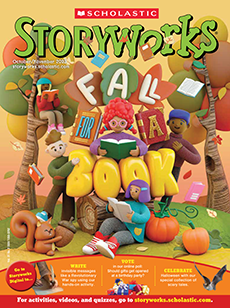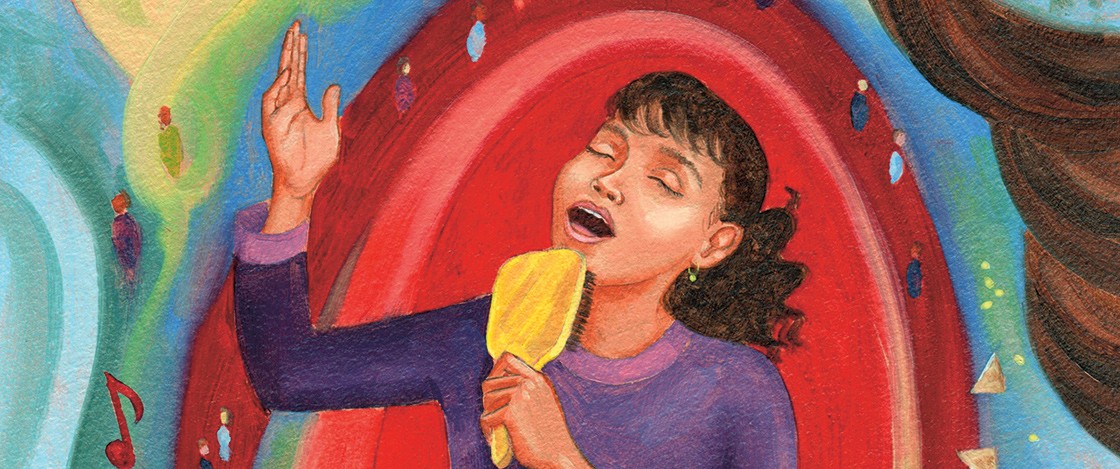Amira sang in her bedroom, standing at the edge of her rug where it met the wood floor. It became a stage where she could look out to an imaginary audience.
“Your music is so loud!” Jibril burst in, letting the door hit the wall. “I told you I was trying to study.”
Everything disappeared. The stage and the sound of the applause vanished. Even the microphone in Amira’s hands turned instantly back into a hairbrush. Her face burned with embarrassment.
“Can’t you knock?” Amira asked.
“I can,” her brother said. “And I did. You didn’t hear me.”
“Sorry,” Amira said, because she knew Jibril really did try to give her privacy. After all, it was his room too.
Jibril got the books he needed, but before he left the room, he turned around. “You do have a great voice, you know,” he told her.
Amira wasn’t sure which was worse: getting caught singing at the top of her lungs, or being told she was good at it. In a funny way, her brother’s compliment scared her, even as it made her heart thump with possibility.


